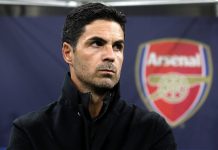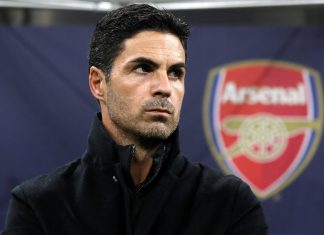There may be an element of truth in that over simplistic statement, but the more pertinent argument would be that it is how you spend the money that counts, rather than the volume spent.
Few could possibly argue that Manchester City’s £25 million acquisition of Emmanuel Adebayor was a great piece of business for the Saudi backed club, particularly taking into account his excessive wages. On the other hand, Arsenal, whom Adebayor was signed from, have brought in Marouane Chamakh as the Togolese’s eventual replacement, on a free transfer from Bordeaux, on wages a third of what Adebayor receives at City.
Big money can yield results if spent well. Fernando Torres moved to Liverpool for £27 million, but he has repaid the club with his consistent performances and goals, even if this season has not been a good one for the Spaniard. Darren Bent may get goals for Aston Villa following his £24 million move to the club, but he is no Torres. Combined with the £12 million spent on Lyon’s Jean Makoun, one is left wondering whether the Midlanders are spending their money wisely. For the price of Bent, Gerard Houllier could have signed Marouane Chamakh, Steven Pienaar, Javier Hernandez and Rafael van der Vaart, twice.
It is a fairly self-evident point. It is not how much you spend, but how it is spent, that really counts. And it is a point that should be remembered when teams and managers complain about a lack of funds. Houllier’s predecessor Martin O’Neill ran out on Aston Villa when he was not given the cash to spend on yet more English players who weren’t particularly good. Having seen the Ulsterman waste millions on the likes of Nigel Reo-Coker, Luke Young and Steve Sidwell, Randy Lerner lost patience with his profligate spending. O’Neill meanwhile, complained about the lack of money at his disposal, despite the club spending the second largest amount on new signings the previous summer of any team in the league. Villa’s rivals for the crucial Champions League spot last season, Tottenham, spent £27 million in the summer of 2009 compared to the £43.6 million expended by O’Neill’s team. The problem the bespectacled one had was not the lack of funds, but his inability to spend them well.
Rafa Benitez did something similar at Liverpool, with a series of complaints about money in his final months at the club. Yet the £20 million purchase of Robbie Keane and £18 million capture of Glen Johnson suggests a lack of money was not the issue; but the way it was spent. Unlike O’Neill, Benitez did not make bad signings, but he made too few with the resources at his disposal.
Manchester United and Chelsea have both toned down their spending in recent years, bringing it closer to Arsenal levels. Yet whilst United are still top of the league, Chelsea have fallen away, due to the fact that they spend astronomical sums on player wages. Arsenal meanwhile, may displace Chelsea as United’s challengers for the title over the coming years, having spent considerably less than their London neighbours in order to do so.
Probably the most interesting case in point is Ian Holloway’s Blackpool. With the second smallest budget in the Championship last year, the pint sized but endearing Englishman created a team good enough to win promotion and then to compete in the top half of the Premier League. Yet Blackpool have flourished because of Holloway’s ability to understand the value of money as a means to success, rather than an ends. He has created a team which plays neat passing football, with a modern formation and system which is adaptable and carefully constructed. Whilst much emphasis has been placed on the team’s carefree attacking instinct, it is not without abandon. The team have carefully honed tactics which ensure that each player sticks to his or her job with diligence, working hard to make the team hard to beat as well as free scoring. Considering that Blackpool’s team cost a sixth of what Yaya Touré earns per year, it puts significant perspective on the importance of money in football.







